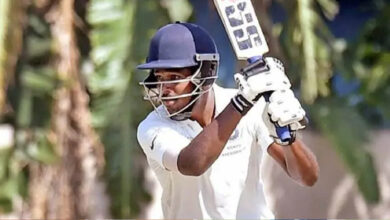More than a game: With USA, England, Iran and Wales, geopolitics adds a layer to charged-up Group B

“A U.S. interagency working group has been set up in advance of the Iran game to determine if their offence can be deterred, the scope of follow-on negotiations in the event of a draw, and whether exchanging jerseys violates sanctions.”
Washington-based Iran expert Ali Vaez’s tongue-in-cheek tweet moments after the draw for the World Cup was announced in April encapsulated one of the many sub-plots of the most geo-politically charged match-up of the group stage – the USA vs Iran. And they just form one half of Group B.
The other two countries in the group, England and Wales, are part of the same ‘sovereign state’, but are ferocious rivals when it comes to sport.
Purely on sporting terms, Group E comprising Germany, Spain, Japan, and Costa Rica might be the ‘group of death’, but when it comes to international political relationships, Group B adds a fascinating dimension to the tournament.
Diplomatic relations between the US and Iran severed in 1980 following the Iranian revolution. The relationship between the two counties has been characterised political, diplomatic and, at times, military confrontations apart from increased sanctions. Since the US declared Iran an “Axis of Evil” in 2002 for aggressively pursuing nuclear weapons, the relationship has soured further, with Washington accusing Tehran of carrying out attacks across the Middle East, including against US forces based in Iraq and Syria.
In 2020, the two countries were on the brink of war after the US killed a top Iranian general and Tehran responded with retaliatory missile strikes at US forces based in Iraq.
In this backdrop, the match between the two countries on November 21 assumes huge significance although coaches of both teams have sidestepped the questions over the political nature of the tie. More so for Iran, which is currently witnessing nationwide protests after Mahsa Amini, a 22-year-old Kurdish-Iranian woman, was beaten to death in police custody.
Several top players have taken a stand against the government and they could do the same in Qatar as well.
It may not be anything as serious as USA and Iran, but a stirring speech actor Michael Sheen, who played the role of legendary British coach Brian Clough in the movie The Damned United, captured the emotions of the Welshmen heading into their match against neighbours England.
Wales have qualified for a World Cup after 64 years and seem determined to move out of the imposing shadows of their neighbours. “We haven’t waited 64 years and come halfway around the world to be troubled our neighbour from back home. When the English come knocking on our doors, let’s give them some sugar boys… they’ve always said we’re too small, we’re too slow, too weak, too full of fear,” Sheen said in his speech, enacted on the show A League of Their Own.
His speech included references to the late Gary Speed, Wales’ last World Cup campaign in 1958, manager Rob Page and the legendary “red wall” of Wales’ fans heading to Qatar.
Of course, Group B isn’t the only one that has matches with intriguing storylines. While no other group comes close to the drama this one can potentially provide, there are some matches that have interesting political sub-plots.
In Group C, Latin Americans Mexico and Argentina are paired together. The two countries have a great footballing rivalry and are both ruled left governments. And in Group D, France and Australia go head-to-head. The two countries, earlier this year, had a serious disagreement due to the fact that Australia cancelled contracts for the purchase of French submarines.
Earlier this month, FIFA president Gianni Infantino pleaded with the 32 countries competing in Qatar to “focus on the football” and leave “politics” out of it. Try telling that to the supporters of these teams!




